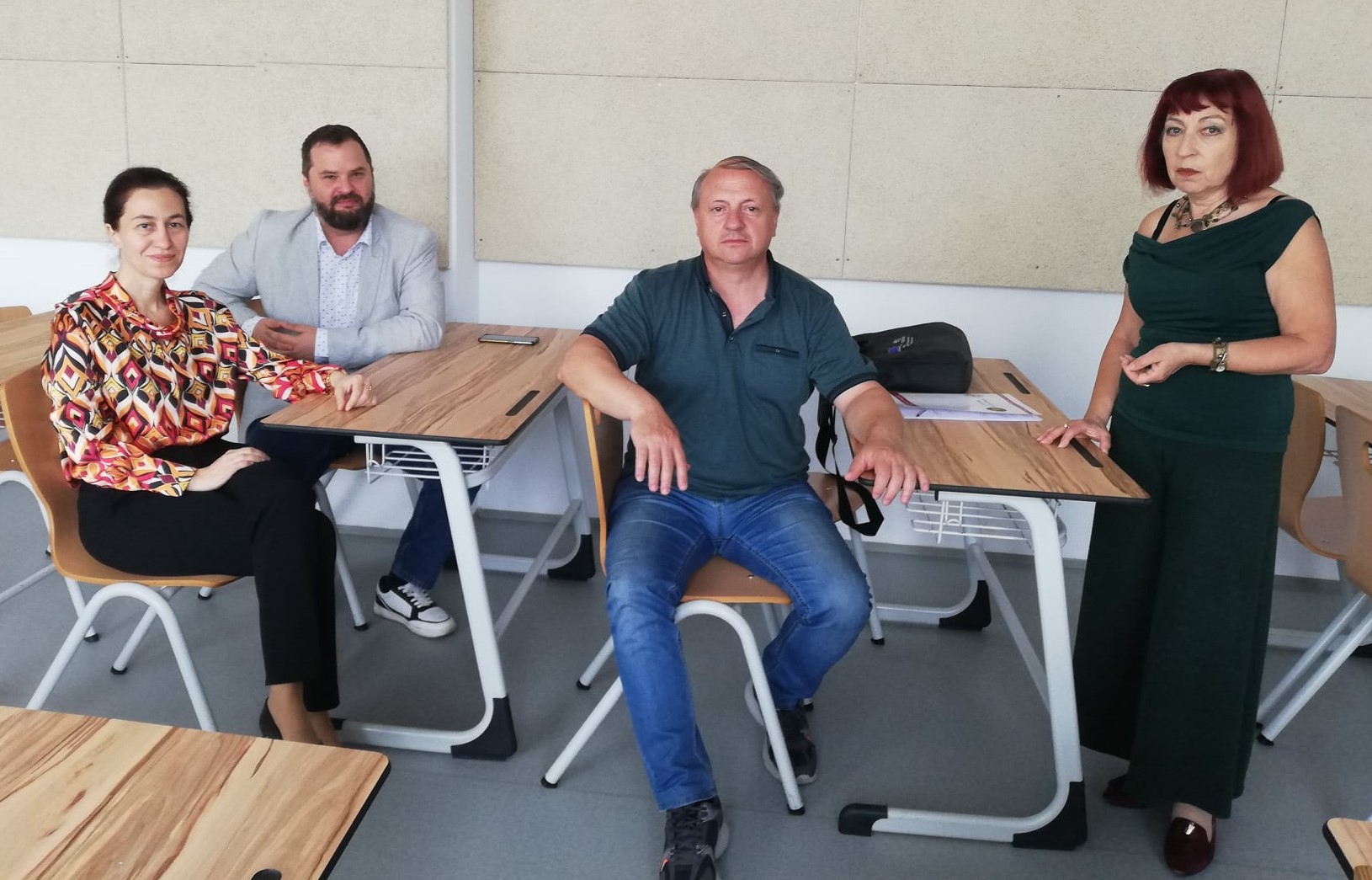Leturers from the International Economics and Politics Faculty and Economics of Infrastructure Faculty Were Trained in Interactive and Innovative Teaching Methods
At the suggestion of the Rector of UNWE Prof. Dr. Dimitar Dimitrov in order to increase the quality of education and in relation to the forthcoming procedures for programme accreditation of professional fields and specialties of regulated professions a series of Seminars on the Interactive and Innovative Teaching Methods for Increasing the Quality of Education" are held at the UNWE.
"The seminars are related to the new requirements that the National Evaluation and Accreditation Agency /NEАA/ has included in the evaluation and accreditation of professional fields and specialties of regulated professions. This is the second Seminar with participants the lecturers form the International Economics and Politics Faculty and Economics of Infrastructure Faculty.
The training is by Faculties because in each Faculty there is a specificity and this specificity must be reflected", explained Prof. Dr. Yanka Totseva, Director of the Centre for Innovative Educational Technologies and Head of the Pedagogy Department who leads the Seminars. Increasing the quality of teaching is not only included in the new requirements of the NEAA and the Strategy for the Development of Higher Education but it is also an emphasis in the policy of UNWE.
Prof. Dr. Yanka Totseva, one of the leading specialists in Bulgaria in interactive and innovative methods in teaching, a lecturer with many years of experience and numerous works on the subject and a specialist in andragogy, science of training and adult education, introduced the colleagues from both Faculties with the essence, the main characteristics and the practical application of interactive and innovative methods, emphasizing on the differences between them.
"The purpose of interactive methods is to induce activity in students by changing the roles of the trainer and the trainee through the freedom of choice of means, time, place and rhythm of learning the students independently to reach to knowledge and the innovative techniques are the innovations, novelties. The modern university for being innovative must be a "platform", a "social environment" and a "place for science", said Prof. Totseva.
The lecturers from the Political Science Department together with the Dean of the International Economics and Politics Faculty Assoc. Prof. Dr. Svetla Boneva discussed the incorporation of Artificial Intelligence in educational programmes. "There are futuristic scenarios that the artificial intelligence will replace the teacher, but I think there will always be a need for teachers, because we, in addition to concrete knowledge, teach students social relationships, educate them emotionally and morally", said Assoc. Prof. Dr. Svetla Boneva.
 |
The topic of the use of social media in the modern election campaigns was also discussed and the conclusions were that the role of internet media becomes more and more significant at the expense of printed materials, posters, newspapers, leaflets. "Facebook, originally designed as a network, has gradually become a media that is actively used together with other social media for politics, business, education. Each of us has our own media", said Prof. Dr. Yanka Totseva. She also concerned the topic of Gamification, the application of game technologies in the process of knowledge acquisition - social, computer games, theater - giving learners different roles to play.
Special attention was paid to the use of modern digital educational technologies applicable in the learning process in higher education institutions as well as to good practices that are desirable to describe and share.
The implementation of activities to improve the qualifications of university lecturers is a requirement set out in the criteria for programme accreditation of a professional field/discipline of the regulated professions in accordance with ESG Part 1 /1-10/ and within the meaning of Art. 3 of the Higher Education Act. This is explicitly defined in Standard 1. Quality Assurance Policy in which the following are recorded as quantitative indicators: N1.1.2. Average annual relative proportion /in percentages/ of lecturers who have participated in training for enhancement of their qualification /relative to their total number in the relevant year/ /weight 3/. N1.2.1. Average annual number of quality assurance events /trainings, seminars, round tables, etc./ organized and conducted in the Professional Fields /weight 3/. There is also a specific indicator in Standard 3. Training, teaching and assessment oriented to the trainees has a specific indicator that can be supported by evidence of acquired competence in the use of interactive learning methods: N3.1.1. Relative proportion /as a percentage/ of compulsory and elective Professional Field subjects with curricula that include the use of interactive learning methods /relative to their total in the current academic year/ /weight 2/.